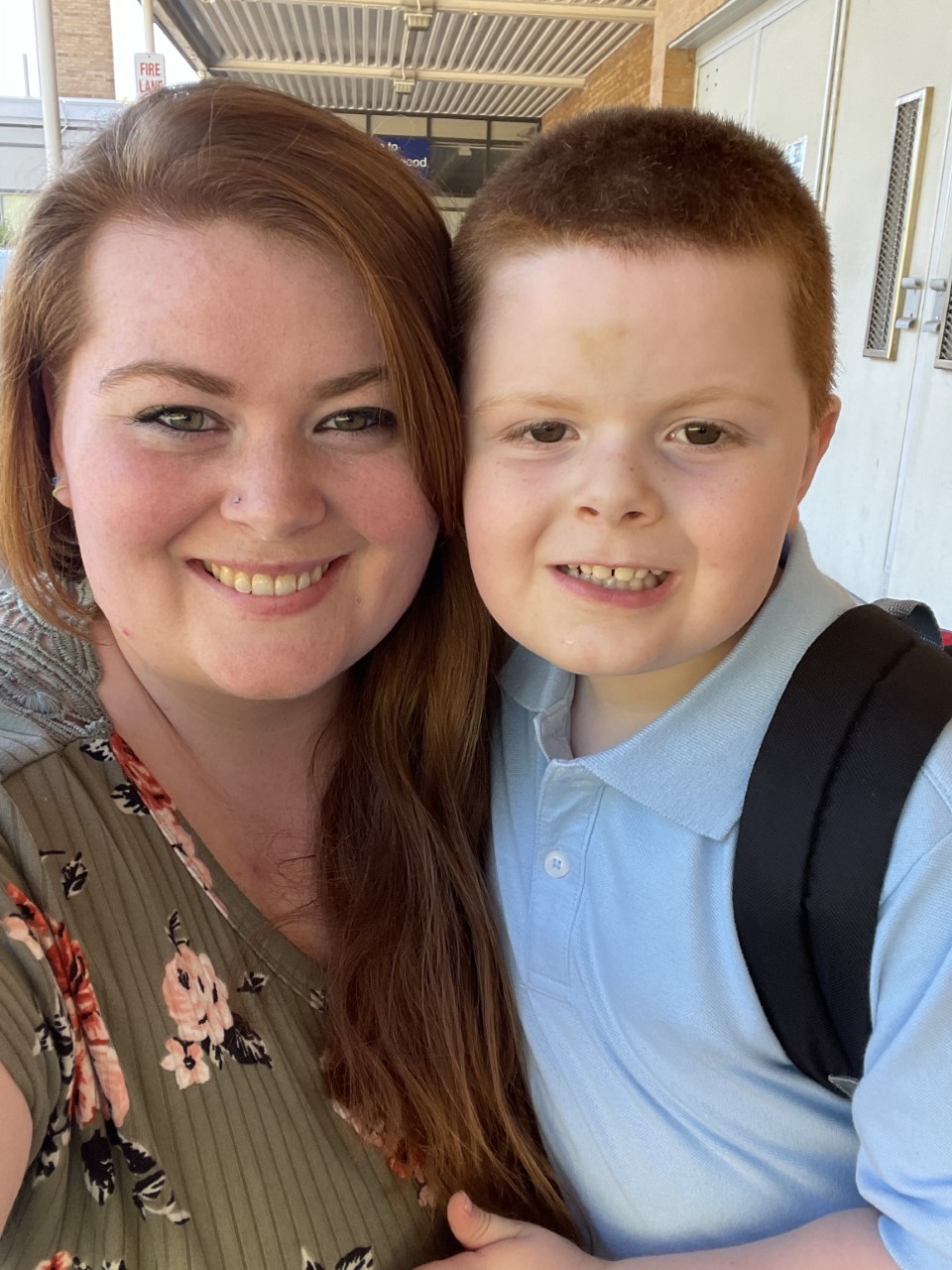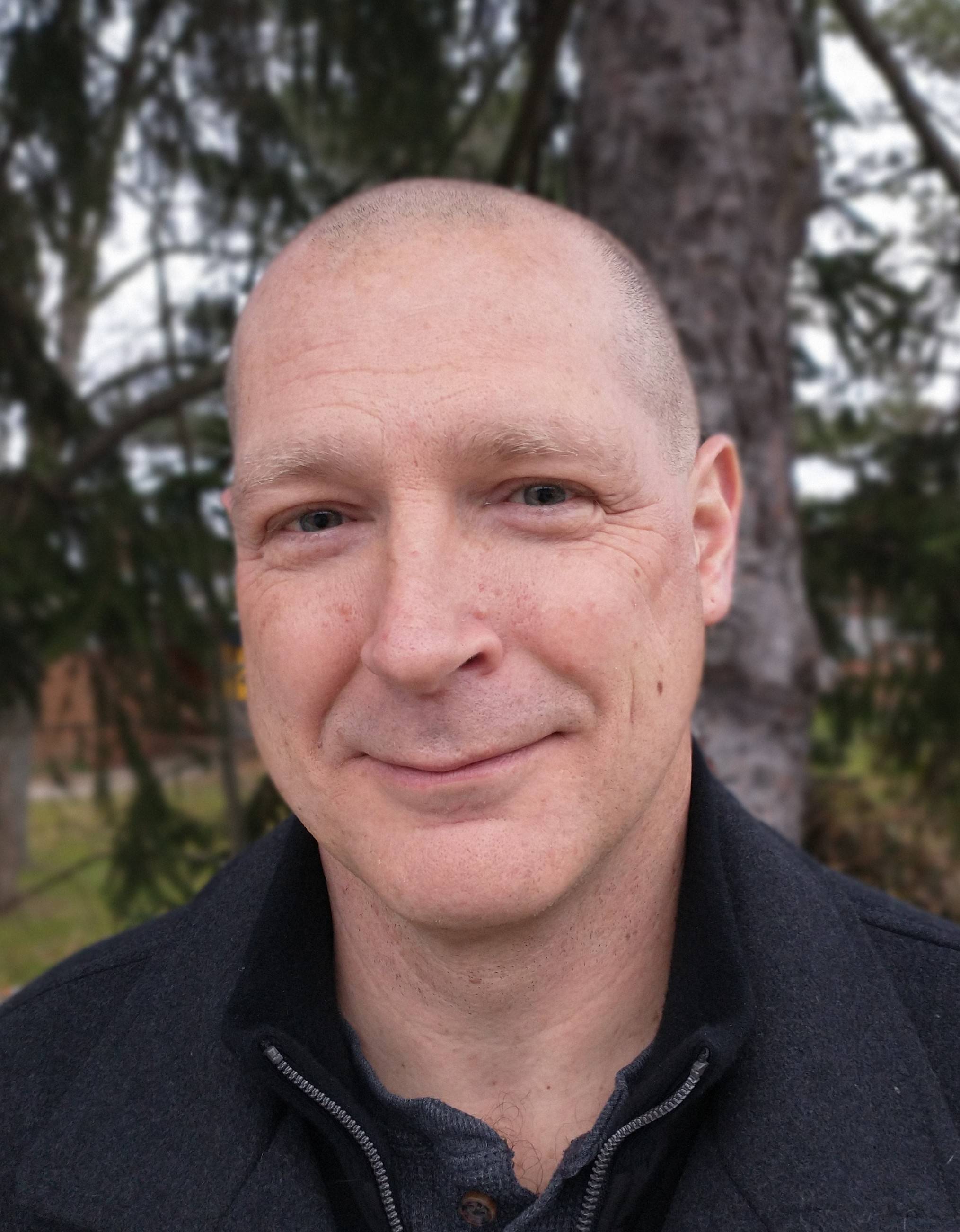|
Life happens. Sometimes it happens for college seniors who are close to completing their degrees, causing them to leave school without graduating. A Clarion University effort is identifying these students and helping them complete requirements to get degrees in their hands.
Denny Auerbeck '21 left Clarion University in 1991 after performing well on a civil service test to become a firefighter for the City of Altoona. Shortly after the city hired Auerbeck, he was diagnosed with Type 1 diabetes. He struggled with health challenges and the physical demands of the job for 3½ years, then resigned and returned to Clarion University in 1996. By then, he was an adult responsible for a mortgage and paying his own health care expenses.
"I returned to Clarion long enough to nearly finish my chemistry degree, but I left just short of finishing my elective requirements," Auerbeck said. "Online instruction was not an option in the 1990s, and the only way to finish would have been to put my life on hold a second time and physically attend classes in Clarion."
Instead, he used his completed chemistry coursework as qualification and was hired in January 1997 as a lab technician for a local chemical manufacturer.
Elizabeth Paulin '21 enrolled at Clarion University in 2012. For various reasons, she had to take several breaks from school, the last one in 2019, just three credits from graduating.
"In my case those three credits were a class I took multiple times and failed. I lost hope that I was ever going to graduate," Paulin said. "I felt so defeated."
She, too, was working in her field of study.
"I've been with the City of Pittsburgh since November 2018. In May 2019, I transferred departments and was promoted to my current role as administrator II," Paulin said. "I figured I'd cut my losses and go back to school when my son was a little older. I tried to convince myself that being the first in my family to go to a university was a win of its own."
Auerbeck and Paulin are two of the 199 students who were contacted with the happy news that degree completion was within reach. The outreach began in 2018 when the liberal studies program was revamped to work better for students.
The liberal arts degree required 24 credits of upper-level courses in the College of Arts and Sciences, which meant a student coming from business, education or health sciences could not count a lot of their coursework. With the support of Faculty Senate and the Committee on Courses and Programs of Study, the university changed the requirements so that classes from all of the academic colleges would count to satisfy the upper level coursework requirement. The program was renamed integrative studies.
Once those changes were made, many students who thought they needed more classes to graduate could be done with the integrative studies degree.
Dr. Ellen Foster works with Missy Kube, secretary to the dean of the College of Arts and Sciences, to review the records of students who left Clarion University and had earned 114 credits or more. So far, they have reviewed records back to 1999.
"We have graduated 196 students with a Bachelor of Science or Bachelor of Arts degree and three students with an associate degree," Kube said. Another 10 graduated at December 2021 commencement. The numbers change weekly as Foster and Kube contact more students.
"In some cases, students reach out to us, especially if an opportunity like a promotion might be available to them with a completed degree," Foster said. "In most cases, though, we reach out to students through LinkedIn, Facebook, email or regular mail."
Kube and Foster help students reapply and find the best path to graduation, whether it is their original degree or an integrative studies degree. The integrative studies degree can be paired with a minor or can be focused on a particular subject like communication or writing through one of 13 concentrations. Part of the process is carefully reviewing and using transfer credits, as the system is more flexible than it used to be; students can apply 90 credits from other schools toward a Clarion degree. A number of students re-enroll at Clarion to finish a few courses online once they understand how close they are to diploma.
Auerbeck said he was shocked and elated when he learned there was still a chance of graduating after 25 years away from Clarion.
"I had always hoped to someday finish my degree, but as more time passed, I assumed my coursework and credits – which were decades old – would no longer be counted toward earning a degree," Auerbeck said.
|
After contacting the Registrar's Office and being directed to Foster, he discovered he only needed to complete the English composition requirement to graduate.
"With the guidance and encouragement of Dr. Foster, I was able to complete the requirement through online writing assignments and examples of prior work," he said. "Since so much time had passed since I last attended Clarion, the names of my completed chemistry courses had changed slightly and were no longer exact matches to current course requirements. Dr. Adam Roberts, chair of Clarion's Department of Chemistry, Mathematics, & Physics, generously spent time to match my prior courses to the current chemistry curriculum."
Although he had been able to move through several career progressions using his experience and work ethic, the chance of pursuing other career paths within the company was limited by not having a degree.
"Even though I had years of experience in chemical research and manufacturing, every employer listed a degree as prerequisite," Auerbeck said. "I discovered that the degree credential was just as important – or more important – than any amount of career experience."
"Earning my degree has given me the satisfaction of finally realizing a goal that I tried and failed to attain as a younger adult," Auerbeck said. "It has also opened up the possibility of pursuing alternate employment opportunities, which is especially important after the uncertainty created by the pandemic."
For Paulin, all it took was a faculty review of her work training and experience, for which they awarded her prior learning credit. That easily, she became a college graduate.
Those who think they might benefit from a new review of their Clarion coursework and transfer credits from other institutions are encouraged reach out to Kube at mkube@clarion.edu, 814-393-2225 or Foster at efoster@clarion.edu, 814-393-2158.

